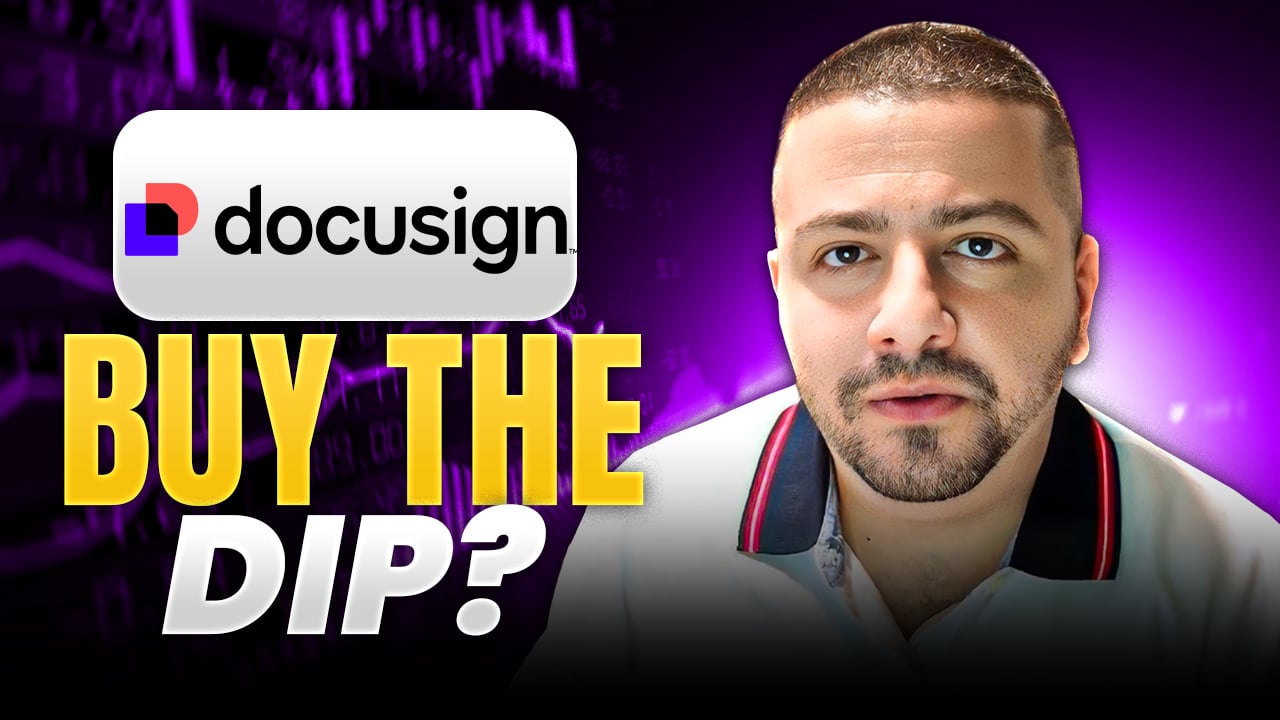Whether or not you've been riding out the market volatility of the last few months with optimism, there's no denying that there are an incredible number of stocks trading at bargain-basement prices right now. But a cheaper valuation alone doesn't necessarily make a stock a good buy. In this segment of Backstage Pass, recorded on Jan. 10, Fool contributors Toby Bordelon and Jason Hall, joined by Fool Canada analyst Jim Gillies, discuss several such stocks.
Toby Bordelon: Well, first, I am going to say, I disagree with Jim a little bit on DocuSign (DOCU 4.46%).
Jim Gillies: Good.
Bordelon: I love the business.
Gillies: Good.
Bordelon: I absolutely love that business. Your point on the dilution is 100% right. That's an issue. Whether that's going to be a great investment, I think does depend on how long it takes them to figure that out, if they ever do. That's certainly an issue. But from a business standpoint -- man, I'm thinking back to my days as a junior associate in a law firm.
If they had existed back then, either I would not have ever had that job because my 40-person class of first-years was going to be five people based on the amount of work they would've saved. Or, if I had, and I'd made it -- fast-forward a couple of years to when I was managing teams of literally hundreds of contract attorneys reviewing documents: That would not have existed. That would have all been automated.
Gillies: Like I said, I believe they made a better mousetrap. I really do.
Bordelon: Yeah, they definitely have. But we do -- I think you're right -- need to separate our love for a business from the prospects of the stock. And that does come down to management, how they're handling things.
Gillies: I did like that the CEO actually seemed like a very "the buck stops here" kind of guy. And the most recent quarter, in which the stock had what, a 25% to 30% haircut in one day? I do like that he did throw $5 million of his own money at the stock. Allegedly -- I haven't looked up the Form 4, but I'm presuming that now...
Jason Hall: Was that $5 million, potentially, the product of prior equity awards that he ...
Gillies: That's where I was going to go. Yeah. They're not all created equal.
Hall: Like a yo-yo. [laughs]
Gillies: Yeah. Sometimes, it's for optics only. He made an attempt, and I like that. Anyway, please continue.
Bordelon: Well, let me give you the two companies here. I went in a different direction. A little surprise here, maybe. The one I would actually buy if I did not already own a large amount, which has been painful for me, is Sam Adams, Boston Beer (SAM 1.73%). I would buy them.
Look at what's happened. The stock got hit. The big hit came when they ... essentially, what happened is the seltzer market, which they have been fantastic in, the hard seltzer market ...
Hall: But if you remember, we talked about this late spring ...
Bordelon: We talked about this. Yeah ...
Hall: The stock was was priced for perfection.
Bordelon: It was priced for perfection. Turns out the seltzer market is not going to grow as quickly as we might have hoped. That hit the stock. They had to get rid of some inventory. But it's not just them.
If you look at what other companies have said. Molson Coors, I think, has discontinued their Coors Light version of the hard seltzer in the United States. Constellation Brands came out in their last earnings report and said, "Yeah, we had planned to double our investment in that space. We don't think we're going to do that now." Other companies, too, have been more hopeful than I think perhaps is justified.
Hall: Would you call this the seltzerverse?
Bordelon: You could, [laughs] maybe. The positive point here is that, based on history, Boston Beer is pretty good at getting into categories and figuring out what people want to drink, and being there first.
They did it with seltzer. They're working on some other things. Ready-to-make drinks -- they've got partnerships with some liquor companies on that. They've got cannabis drinks in the works. Other people do too. But I am optimistic about Boston Beer's manageability to ...
Hall: They've been successful with this thing in a way that the other macros have not been able to be.
Bordelon: Yeah. Look, there are probably some better investments out there than a beer company right now. But if you're saying to yourself, "I want to buy into this industry," I like Boston Beer a lot more than I like someone like Molson Coors or Anheuser-Busch, whose growth prospects seem a little mediocre.
Hall: But when you already sell one out of every five beers on the planet, as AB InBev does ...
Bordelon: Yes. It's a little more challenging.
Hall: It is a challenge.
Bordelon: I like it. I think it is worth looking at.
Hall: I like it too.
Bordelon: The one that I would not buy with Jim's money or my own: Fastly (FSLY 3.48%).
Hall: You are saying that you wouldn't walk, you'd run away "fastly."
Bordelon: Yes, you're just coming with these aren't you, Jason? Good times, good times.
Hall: I can do this all day long.
The thing is, the whole SaaS space, I think, is getting more and more competitive. We're getting to this area now, where a couple of years ago, each company had their own little niche, but now, the bigger ones are starting to cross-market to each other's niche, getting new products and services there, encroach into each other's territory.
I don't think it's the case that everyone out there can be a big winner. When I look at what Fastly has done, even before this big drop, "disappointment," I think is the word, and I'm no longer convinced that they're going to be one of the ones that's a big winner. I think if you're going to invest in any of those types of companies, you would be better-served looking elsewhere.
Hall: One of the things that we've talked about actually with Fastly, too, is that the question is: Can this really be a stand-alone company, or does this need to be part of another company? Because we've seen a lot of tech companies that are building their own edge stuff. We have a lot of the broadband providers and the telecom companies that are providing the same edge service.
Bordelon: What you've seen over the past couple of years is a lot of these companies -- the good ones -- have said, "This big service we have that everyone knows about is not enough, so we have to add other stuff." And others have done that better.
As more companies are adding other stuff, there's just a limited universe. I don't think everyone can be a winner.
There can be multiple winners, but some are not going to win. And if you said, "What do you think right now on Fastly?" I would say I don't know if they are a long-term winner. I just don't.
Hall: There is no killer app. There's no killer advantage. This has just become a pricing thing. And it's a commodity service, and well, you how that goes.
Gillies: I am happy to say I'm in no danger of buying Fastly. [laughs]
Bordelon: There you go.
Gillies: So Toby, you've got that one nailed. Well done.










